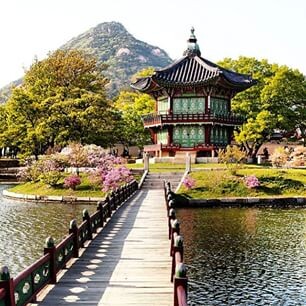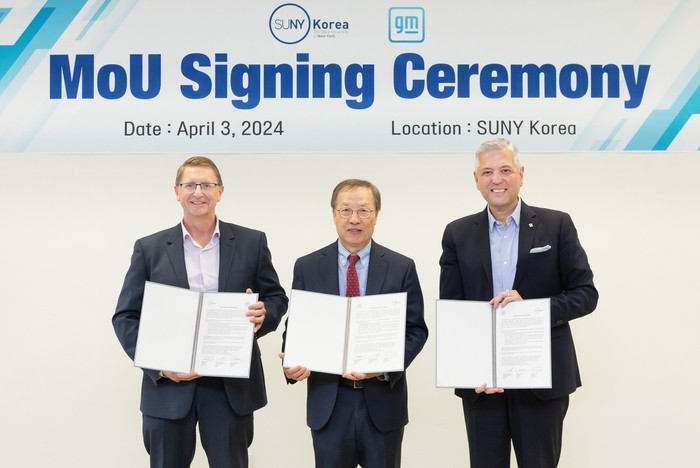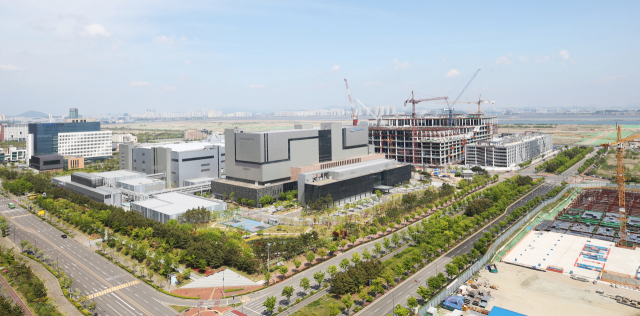Just us in Part 2 of Korea’s Money Today’s interview with Dr. Peter Wonsok Yun, Commissioner of the Incheon Free Economic Zone Authority, and his Q and A.
I provided the translation and editorial review. Please check it out. Few grasp global developments as well as Dr. Yun.

Dr. Wonsok Yun, Commissioner of Incheon Free Economic Zone Authority,
(Photo provided by Incheon Free Economic Zone Authority)
The following is a Money Today Q&A with Commissioner Yun. In Part 2 of the interview, Dr. Yun shared his insights, thoughts, and plans.
Q. Please briefly explain IFEZ
IFEZ was designated “Korea’s first free economic zone” on August 11, 2003. At the time, no one could have imagined reclaiming the desolate West Sea mudflats and turning them into a global city.
Over the past 20 years, IFEZ has successfully transformed ‘Songdo, Yeongjong, and Cheongna’ into international cities with exceptional innovation and lifestyle.
Above all, we are proud of what we have achieved — our original goal of ‘attracting foreign investment’.
Last year, the environment for attracting domestic and foreign investment contracted due to the war between Russia and Ukraine, but we achieved $432 million in FDI, a 10.7% increase compared to 2022.
Large multinational corporations and research institutions were established, fostering a global startup ecosystem where international talents, including overseas Koreans, congregate and collaborate.
The role of IFEZ is crucial for the success of Incheon City’s 8th popularly elected core policies, ‘Global Top 10 Cities (New Hong Kong City)’ and ‘Jemulporn Renaissance’.
It is now time to lay the foundation for long-term, sustainable growth in the future.
Q. What needs to change to lay the foundation for sustainable growth?
So far, IFEZ has adopted the ‘linked development’ approach, which involves constructing profit-making facilities alongside public facilities. The profits generated from the development and land for private apartments and businesses have been channeled for public facilities such as parks and social infrastructure (SOC) for the city.
Significant progress has been achieved in developing infrastructure for smart and international cities through this interconnected method. However, the development is highly residential, which limits its ability to attract domestic and foreign companies for business and job creation.
Now that IFEZ is 20 years old, we aim to develop a new model that integrates linked development and investment attraction.
We will attract strategic industries to fulfill the core function of the free economic zone as a ‘global business hub’ and to advance in name and reality.
We need to provide a driving force for new industries, such as start-ups, and foster the AI industry.
Q. The target for foreign investment attraction this year is set at $600 million. What is the strategy?
This year, we plan to expand our strategy to attract “global IR companies” and bring in more cutting-edge companies.
In addition, we will achieve this year’s target of $600 million by establishing a ‘Day Station Incheon Strategy’ where companies gather in Incheon.
We will take the lead in balancing development within the existing industrial complexes in the original city center of Incheon. To this end, we plan to strengthen our network by collaborating with the Korea Trade-Investment Promotion Agency (KOTRA) and the World Federation of Overseas Korean Traders Associations (World OKTA).
During the first half of this year, we are putting every effort into our high-tech industrial complex strategy in the bio-pharma sector.
We believe that Songdo, which already possesses world-class biopharmaceutical production capabilities, is the perfect match.
We are putting our efforts into attracting a bio-specialized complex to build a ‘Bio-Triangle’ connecting the Songdo-Namdong-Yeongjong region.
As the companies in Songdo possess advanced strategic biotechnologies, as noted by the Ministry of Trade, Industry, and Energy, I believe it is the most suitable region for the government’s industrial development.
Q. Why are you pursuing additional FEZ lands, including the southern end of Ganghwa and Incheon Inner Port?
Twenty years have passed since IFEZ was launched. As we enter maturity, investment demand is increasing, but available land is in short supply.
For a specialized bio hub complex to be constructed within IFEZ, like Songdo, additional land must be made accessible.
Currently, IFEZ’s development rate exceeds 90%. There is a lack of space to attract the four major high-tech industries that Incheon pursues.
In many cases, other countries and their competitive cities have available land and rival clusters. IFEZ must also be able to compete in high-tech industries, future mobility, cultural tourism, green bio, and smart cities. To achieve this, additional FEZ designation is essential.
Q. A red light has been turned on for large-scale projects that have stalled, including the Golden Terra City (formerly Midan City) casino project. How are you going to solve it?
I am aware of the concerns shared by the residents of Incheon. We are focusing our efforts on getting things back to normal.
Last March, the Ministry of Culture, Tourism and Sports did not extend the casino project development period applied for by RFKR, the Korean subsidiary of China’s Furi Group, the operator of the Midan City complex resort.
We will seek to develop alternatives to meet the expectations of residents.
In addition, the ‘Icore City Project’, which involves constructing landmark buildings in Zones 6 and 8 of Songdo and has been in consideration for 17 years since announced in 2006, has seen repeated delays. These delays have been due to financial crises, changes in local governments, and the ups and downs of the global economy.
We are currently discussing options and plans to resolve, for example, the height restriction issue with the relevant ministries.
Q. Inaugurated as the 8th Commissioner of IFEZ last February, what activities have you undertaken since taking office, and what kind of organization are you aiming to create in the future?
First, for over a month since taking office, I have spent my time reviewing major work in progress, and visiting the central Incheon City ministries, business sites, and related organizations. I have dedicated considerable time to communicating with shareholders to understand the current business issues better.
Internally, we are promoting the establishment of the ‘IFEZ Vision and Strategy 2040 Project’ that will drive future leaps forward.
We will, too, strive to create a productive and happy IFEZ organizational culture.
In the future, the goal is to make IFEZ a world-class global city that surpasses Dubai and Hong Kong. To this end, we will do our best to attract corporate investment, for example, by conducting ‘visiting investment IR’.
In addition, we will increase the city’s competitiveness so that IFEZ becomes a top free economic zone, creates good jobs, revitalizes the local economy, and serves as a model for a new growth engine for our country.
A Brief Bio, Dr. Wonsok Yun
Born in Chungcheongnam-do in 1960.
Graduated from Sungkyunkwan University, English Language and Literature, a Master’s degree from Seoul National University Graduate School, and a Doctor of Business Administration, from Sungkyunkwan University Graduate School.
Director of Economic and Trade Cooperation Division, Korea Trade-Investment Promotion Agency (KOTRA)
CEO, International Business, Hangul and Computer Group
Chairman of Global Industrial Competitiveness Forum
This article was originally published in the Korean language in the June issue of Leader’s Money Today, a legislative affairs magazine. Sang-gu Yoon, head of Incheon headquarters, Reporter Se-mi Hong.
The article has been translated and edited by Don Southerton. Dsoutherton@bridgingculture.com









